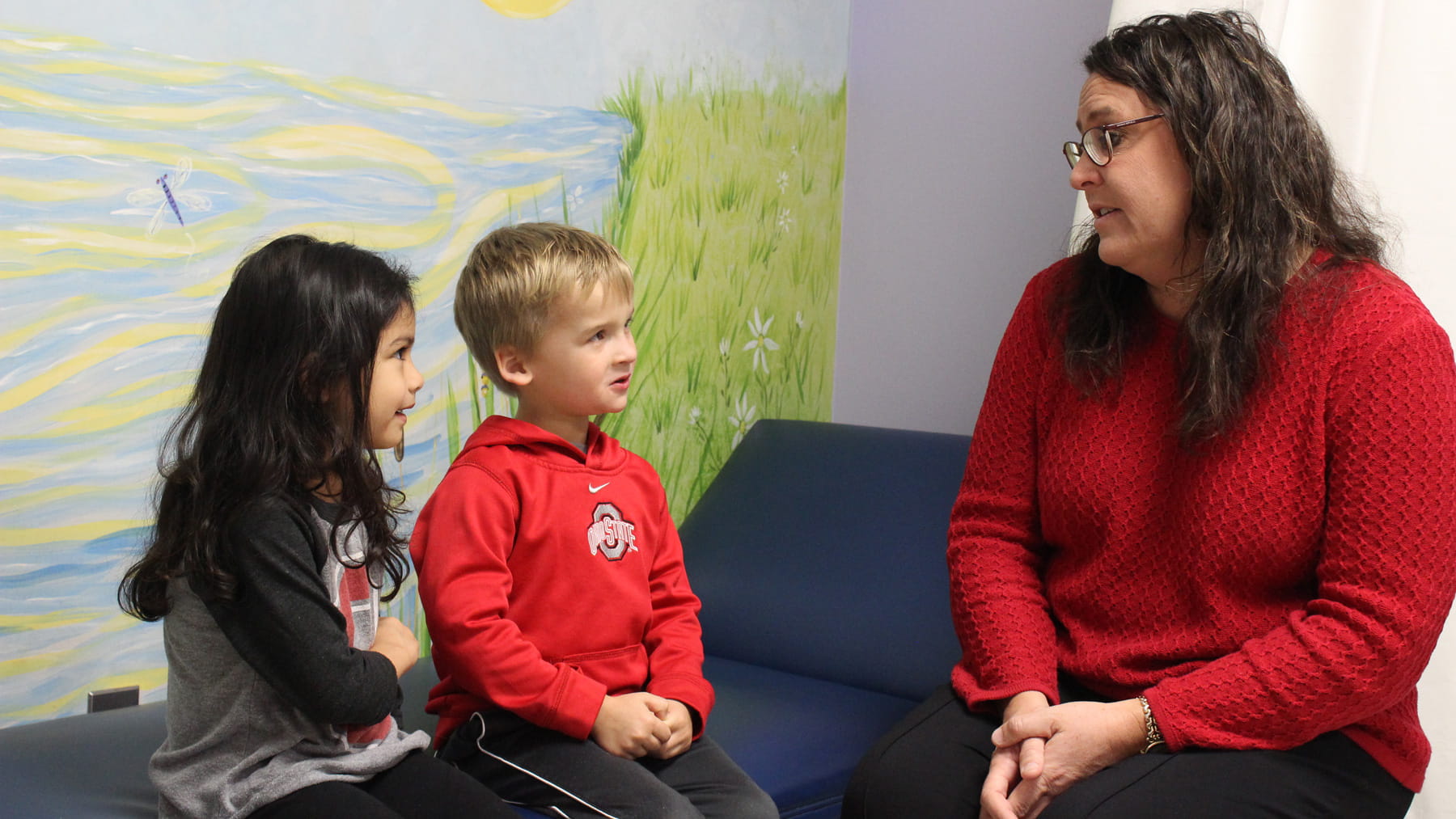How to talk to your children about the coronavirus and ease their anxiety

The current situation with the coronavirus (COVID-19) can be a source of stress and anxiety for you, as well as your children. The most important thing that you can do to help your children through this uncertain time is to remain calm when you’re with them, as your own level of anxiety will affect them. If your children sense you’re anxious, they’ll be anxious as well. Reducing your own stress and anxiety will help your children stay calm.
The Centers for Disease Control and Prevention (CDC) is a reliable source of information about COVID-19. You can check this site regularly for accurate information about the spread of the virus and ways to help keep it from spreading. The CDC also offers tips for talking to children about COVID-19.
First, ask your children what they know or have heard about the virus, and keep information age-appropriate to their developmental level. Answer their questions honestly and simply, being careful not to overwhelm them with too much information. Use language that younger children can understand. Don’t expose young children to visual images on television or social media that may be frightening.
Recognize signs of anxiety and stress in your child
- Children and teens often regress when stressed. They go back to doing things they did when they were younger to help themselves feel more comfortable and secure.
- Other common signs of anxiety in young children include: restlessness/hyperactivity, temper tantrums, nightmares, clinging behaviors, difficulty separating and distress around new people.
- Common signs of anxiety in older school-age children and teens include difficulty concentrating and sleeping, anger, restlessness/hyperactivity, worry and physical complaints, such as stomachaches or headaches.
- At about age 9, children realize that death is permanent. Fear of death is often common after this age.
- Signs and symptoms of anxiety such as these are usually healthy, temporary coping strategies that help your child to deal with stress. However, if these symptoms persist for several weeks or interfere with your children’s functioning, talk to their primary health care provider. They’ll know how to help.
Tips for helping your children to deal with anxiety
- Young children may have difficulty talking about how they’re feeling, so ask them to tell you about how their stuffed animals or dolls are feeling or thinking.
- Older school-age children and teens often find it helpful to write down how they feel in a journal.
- Ask your children, “What is worrying you most right now?” and take time to listen.
- Reassure your children that they did nothing wrong to cause what happened. Toddlers and preschool children often feel guilty when stressful things happen.
- Tell children and teens that what they’re feeling (anger, anxiety, stress) is normal and that others are feeling the same way.
- Decrease anxiety in your child by reassuring them that you’ll get through this together. Emphasize that adults are doing everything possible to take care of the stressful situation.
- Help your children to release tension by encouraging daily physical exercise and activities.
- Continue to provide as much structure to your child’s schedule and days as possible.
- Recognize that added stress/anxiety usually increases physical symptoms (headaches or abdominal pain) in children/teens who are already anxious.
- Help your children to replace negative thoughts with positive ones: If your child seems stuck in worry, ask them what negative thoughts they have and see if you can reframe them in positive ways. “I might get sick” might be replaced with, “I’m going to stay well.”
- Stay socially active while apart: ask your child to help you think of how many ways they can stay in touch with family and friends without visiting them to boost social wellness. Strategies include writing letters and email, Skype or FaceTime conversations and phone calls. Some video games such as Minecraft encourage social interaction and can be played without giving access to strangers—check to see what server your child uses and who has access.
- Use this opportunity as a time to work with your child on their coping skills (relaxation techniques, imagery). Children watch how their parents cope and often take on the same coping strategies. Showing your children that you use positive coping strategies to deal with stress will help them to develop healthy ways of coping.
- Be sure to have your child or teen seen by a health care provider or mental health professional for signs or symptoms of persistent anxiety, recurrent pain, persistent behavioral changes or difficulty maintaining routine schedules.
- Remember that stressful times can be an opportunity to build future coping and life skills.
- If your children are worried about getting sick with COVID-19, you can tell them that most people who have gotten COVID-19 haven’t gotten very sick and feel better now. It’s important not to spread germs to others, though, so that we can stop this virus.
To reduce the spread of germs:
- Stay away from people who are coughing, sneezing or sick.
- Cough or sneeze into your elbow or a tissue. Throw the tissue securely in the trash.
- Wash your hands thoroughly: use soap and water for at least 20 seconds (the time it takes to sing Happy Birthday twice), making sure to get under your nails and around the sides of your hands and fingers. Be sure to wash hands before eating or touching food and after using the bathroom, blowing your nose and sneezing or coughing.
- Stay home if you feel sick.
- Try not to put your hands and fingers in your mouth or on your face.
Should my children be checked for coronavirus?
Fortunately, children don’t seem to be at higher risk for COVID-19 than adults, who make up most cases.
Call your health care provider if your children have these symptoms:
- A fever (100.4 degrees or above)
- A cough
- Fast breathing
- Signs of dehydration
Go to the emergency room or call 911 if your children:
- Have breathing problems
- Are turning blue
- Are confused or very sleepy




